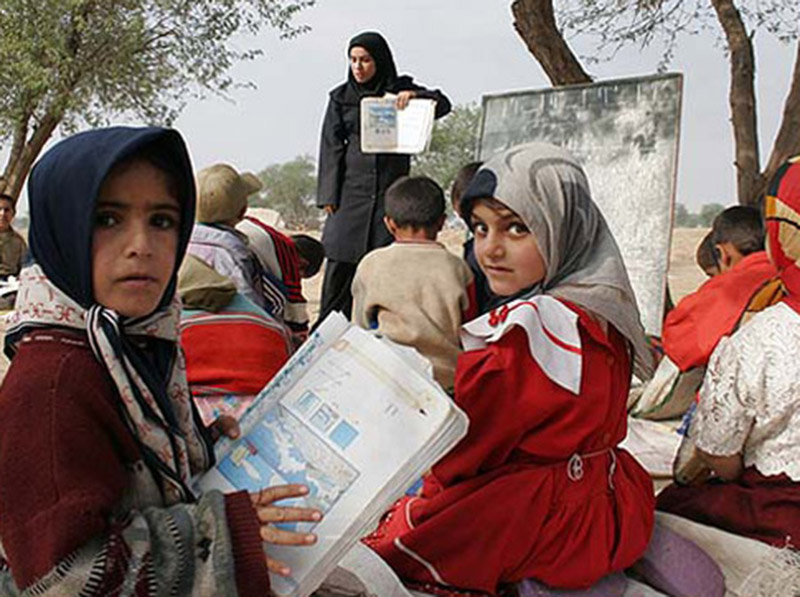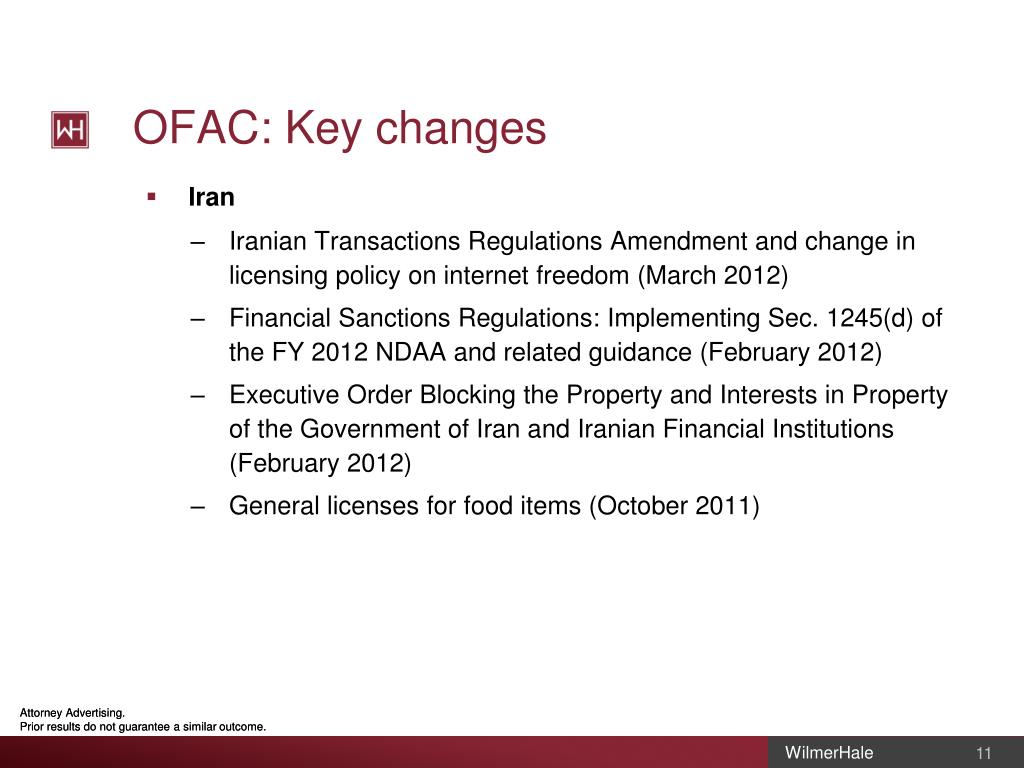
Ofac iran sanctions update license#
For non-US subsidiaries of US banks proposing to engage in such business under General License H, this task could prove to be somewhat complex, as the provisions and conditions of that Licence will need to carefully interpreted.īanking and financial services have been targeted for sanctions relief in the EU and secondary sanctions in the US.
Ofac iran sanctions update update#
In the UK, this could perhaps be an area of focus for the new Office for Financial Sanctions Implementation (OFSI), which will be tasked with ensuring that financial sanctions are properly implemented and enforced.įinancial institutions will therefore need to review and update their operating procedures for doing business with Iran to focus on the sanctions still in force. This is important not only in connection with the EU asset freezes, but also the US secondary sanctions, since the relief of these sanctions does not generally extend to transactions involving targets of US asset freezes (Specially Designated Nationals). For most sectors, the key sanctions to consider will be the asset freeze restrictions, meaning that companies going into Iran will need to carefully screen their proposed counterparties and include appropriate provisions in their contracts. From a compliance perspective, banks will need to carefully manage their transition into the new business environment, given that a number of important sanctions remain in force. The extent of the sanctions relief is substantial and may pave the way for significant commercial opportunities for non-US financial institutions.


New business opportunities and compliance challenges Further information.įurther detailed guidance and FAQs have been published by OFAC. Those of particular relevance to financial institutions include primary US sanctions on Iran and limitations for non-US subsidiaries in engaging in Iran-related activities. Importantly, many restrictions and/or limitations still apply post-Implementation Day. In addition, the United States implemented certain limited relief related to the primary sanctions directed at the activities of US persons, including a general license (General License H), authorizing non-US entities that are US-owned or US-controlled, with certain limitations, to engage in transactions involving Iran. Secondary sanctions continue to apply to non-US persons for conducting transactions with any of the more than 200 Iranian or Iran-related individuals and entities who remain or are placed on the SDN List, notwithstanding the lifting of certain secondary sanctions. The United States removed over 400 individuals and entities from sanctions lists maintained by OFAC. The US commitments to lift secondary sanctions do not apply to transactions or activities involving individuals and entities who remain or are placed on OFAC’s SDN List after Implementation Day or to any other US sanctions that may apply under legal provisions other than those cited in the JCPoA.

Those with particular relevance to financial institutions include financial and banking measures, insurance measures and gold and other precious metals. Under the JCPoA, the United States has removed sanctions directed at non-US persons with respect to certain activities.

The primary sanctions remain largely in place. Most of the relief under the JCPoA relates to nuclear-related secondary sanctions. The United States historically has maintained both primary sanctions, prohibiting US persons from engaging in transactions relating to Iran or involving parties on the List of Specially Designated Nationals and Blocked Persons (SDN List) maintained by the US Treasury Department’s Office of Foreign Assets Control (OFAC), and secondary sanctions, which target the activities of non-US persons.


 0 kommentar(er)
0 kommentar(er)
